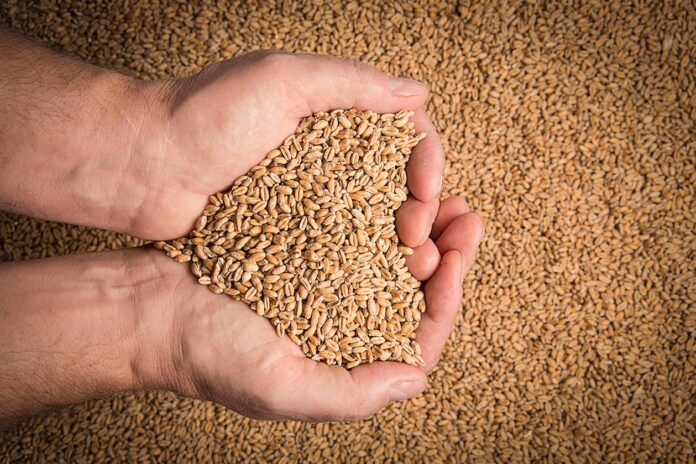ISLAMABAD: The wheat import scandal, stemming from the decision by the interim government to allow the free import of wheat by the private sector has finally reached a conclusion. The scandal which led to widespread protests and criticism from farmers has concluded its investigation with the suspension of five officials for 120 days: former Additional Secretary Incharge of the Ministry of National Food Security and Research (MNFSR), Capt. Retd. Muhammad Asif; Food Security Commissioner-II Imtiaz Ali Gopang; and Allah Ditta Abid, former Director General of the Department of Plant Protection (DPP).
Additionally, Dr. Waseem ul Hassan, Food Security Commissioner-I, and Director Sohail, who were not directly involved in the wheat import policy, were also suspended based on the inquiry committee’s recommendations. Director Sohail, who has never held the position of Director General in the DPP, was suspended without clear reasons. Insiders claim that additional recommendations were made to obscure the issue, protecting the real culprits in the government while using irrelevant officers as scapegoats.
Insiders also revealed that the presence of Mr. Imtiaz Ali Gopand, Food Security Commissioner-II in the meeting held in the Prime Minister office and chaired by Mian Shehbaz Sharif pertaining to wheat crises on 21st May along with the Secretary, MNoFSR, Dr. Muhammad Fakhar Alam Irfan, and the Federal Minister, Rana Tanveer Hussain, irked Mian Shehbaz Sharif.
Witnessing Gopang in the meeting, the Prime Minister got angry and questioned Mr. Asad Rehman Gilani, the principal secretary, why the official has not been suspended so far despite being responsible for a wheat crisis in the country. The gentleman could not explain the reason in the meeting. Even though he explained later that he had drafted the summary as dictated and desired by the former additional secretary incharge, MNFSR, Capt. Retd. Muhammad Mehmood.
Later the Principal Secretary instructed the Secretary Establishment to issue suspension orders of Capt. Retd. Muhammad Asif and Dr. Waseem ul Hassan, FSC-I, two officers from the MNFSR and Mr. Allah Ditta Abid, and Mr. Sohail, two officers from the DPP in addition to Mr. Imtiaz Ali Gopang, Food Security Commissioner-I.
Sources claimed that a senior member of the preliminary inquiry committee constituted by the Prime Minister on April 29, 2024, excluded Capt. Retd. Muhammad Mehmood, from the list of key accused. This was allegedly done to protect him and divert attention from the real culprits.
The investigation, which lasted over a month, did not summon any officials from the caretaker government nor Capt. Retd. Muhammad Mehmood, the former Additional Secretary Incharge who initiated the wheat import summary. This raised questions about the impartiality of the inquiry.
Critical questions remain unanswered: who initiated the wheat import summary from MNFSR during the interim period? Why did the Finance Division support private sector wheat imports instead of importing through the Trading Corporation of Pakistan (TCP)? Why was regulatory duty-free import allowed even after the shortfall was addressed? Why did the newly elected government not take action before the wheat crisis escalated? Why was Capt. Retd. Muhammad Mehmood not suspended?
The import of surplus wheat caused the local market to crash, forcing farmers to sell their wheat at lower prices. Farmers in Punjab, in particular, are facing hardship due to decreased government procurement and plummeting prices, which have dropped to Rs. 3000 per maund.
It is feared that the inquiry committee, by penalizing a few seemingly uninvolved officials, attempted to shield the real culprits in the wheat scandal, who are close to the current administration. Prime Minister Shehbaz Sharif had ordered an investigation into the continued wheat imports post-February 2024, demanding a report within a week. However, the terms of reference were later expanded, prolonging the investigation.
Documents reveal that the decision to allow duty-free wheat imports by the private sector, without restrictions on volume and timelines, was made by the caretaker government on the proposal of Capt. Retd. Muhammad Mehmood.
The Ministry of National Food Security and Research (MoNFS&R) had estimated a shortfall of 2.4 million metric tons, but Pakistan reportedly imported around 3.6 million metric tons, resulting in a surplus of 1.2 million metric tons. This surplus, combined with the arrival of wheat during the domestic peak season, disrupted provincial procurement targets, leading to widespread farmer protests.
Historically, the Punjab Food Department procures 7 to 8 million tons of wheat in total but currently has around 2.5 million tons in stock. Their failure to meet procurement targets has exacerbated the crisis. The Khyber Pakhtunkhwa (KPK) government offered to buy wheat directly from farmers, but the Punjab government refused. These factors have made the inquiry controversial and raised doubts about the credibility of the committee and the government’s actions.




